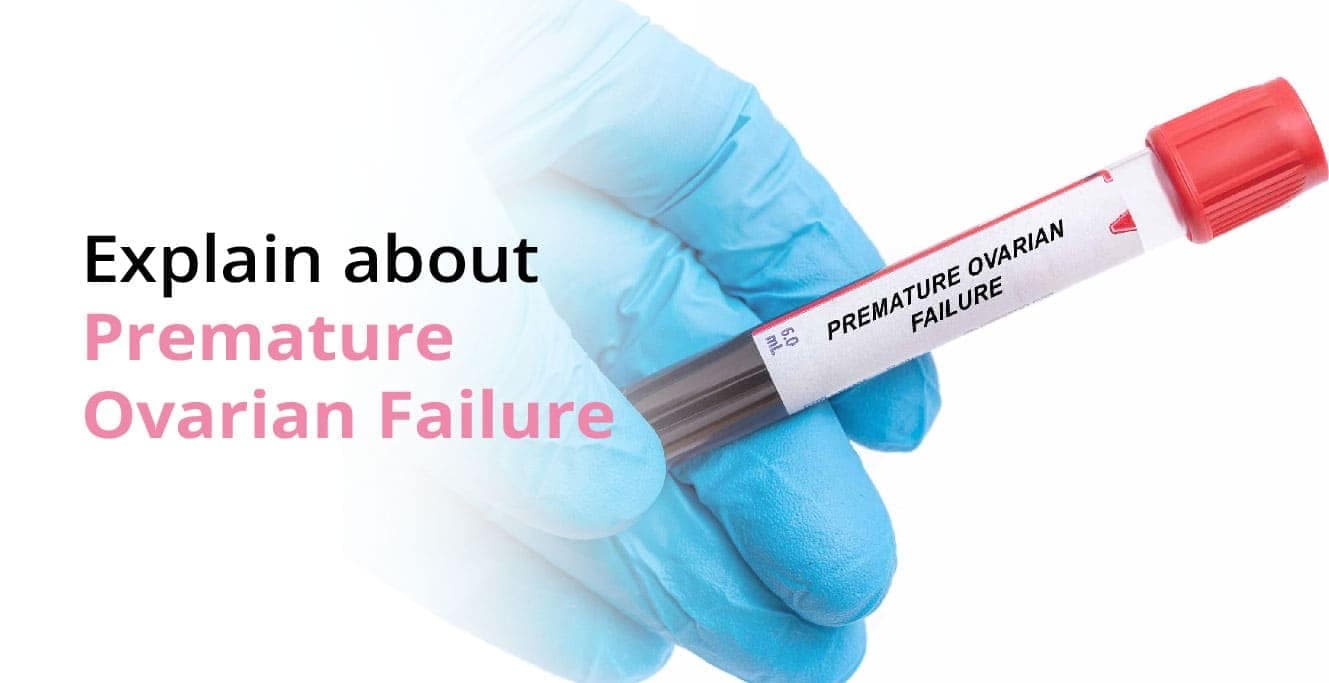
Everything You need to Know About PCOS and Pregnancy

Table of Contents
Our lifestyle choices play a significant role in determining our health. Today, we see a stark absence of healthy lifestyle patterns. The accountability for a sedentary lifestyle lies with easy and convenient access. Nowadays, all of us have upped our consumption of unhealthy, junk foods; our screen times have jumped from a few minutes to lengthy hours; electricity-enabled transport facilities have cut down on our physical activities, and the stress of day-to-day life is heavily put on our shoulders. Collectively, all of this contributes to the development of various health concerns such as PCOS. PCOS is a lifestyle disorder that affects women of reproductive age. An estimated 1 in 5 women in India suffers from this condition.
PCOS, if left untreated, can cause a wide range of health complications. These include cardiovascular problems, type 2 diabetes, obesity, sleep apnea, non-alcoholic fatty liver disease, depression and even pregnancy problems.
In this article, we will be exploring the link between PCOS and pregnancy. With expert insights from Dr Rachita Munjal, let’s study how PCOS affects pregnancy.
What is PCOS?
PCOS stands for Polycystic ovarian syndrome. It is also popularly known as PCOD. It is a lifestyle-related disorder that affects women of reproductive age.
PCOS occurs when your ovaries produce abnormal and higher levels of androgen (male reproductive hormones). This condition is characterised by three main features:
- Irregular or no periods
- Polycystic ovaries
- Excess androgen
PCOS symptoms present in the following ways:
- Menstrual problems
- Unwanted and male-patterned facial hair growth
- Irregular ovulation
- Weight gain
- Thinning of hair
- Acne
- Oily skin
What causes PCOS?
The exact cause of PCOS is not yet known. There are, however, several factors that contribute to the development of this condition. Common factors include:
- Genetics – PCOS runs in the family. It means that this condition can be inherited from older female members in your family’s bloodline.
- Androgens – A woman’s body naturally produces androgen. With PCOS, this production is affected causing an abnormal rise in these levels.
- Excess insulin – Insulin is a hormone created by your pancreas. It is responsible for regulating blood sugar (glucose) in your bloodstream and transporting it to muscles across your body. Your body utilises this glucose to produce energy. Additionally, insulin also controls the function of your ovaries. When you have excessive insulin in your body, your body produces more androgen levels leading to PCOS.
- Obesity – Higher insulin levels or a resistance to insulin can cause weight gain in women. Being overweight also increases your risk for PCOS. On the other hand, obesity can also increase the level of insulin causing PCOS.
PCOS and pregnancy
Since PCOS is a hormonal condition, it significantly affects your ovulation. Ovulation is a natural process in which your ovaries release a mature egg. This egg travels down to the fallopian tube to be fertilised with healthy sperm cells. This process occurs nearly on the 14th day of your menstrual cycle.
When you have PCOS, your ovulation is delayed or absent. It is because higher androgen levels prevent the production and release of a mature egg from the ovaries.
PCOS also causes your ovaries to also begin to produce a certain number of small fluid-filled follicles called cysts. Cystic ovaries, additionally, hinder the release of eggs.
Irregular ovulation, hence, disrupts your chances of conception, thereby, affecting your pregnancy. Briefly put, PCOS interferes with your chances of conception by producing a greater number of male hormones and ovarian cysts.
Challenges in getting pregnant with PCOS
While PCOS interrupts your fertility, it is still possible to get pregnant. Women with PCOS are able to achieve pregnancy, however, they become prone to significant risks and complications. Common pregnancy complications experienced by women because of PCOS include:
Early loss of pregnancy
Women with PCOS are three times more likely to experience miscarriage or an early loss of pregnancy. Furthermore, PCOS can cause multiple miscarriages due to the increased levels of testosterone.
Gestational diabetes
Gestational diabetes is a type of diabetes that occurs during pregnancy in women who do not have diabetes. Those who experience gestational diabetes have a greater risk of developing type 2 diabetes later in life. Your risk of gestational diabetes increases if you have PCOS as your body already has an excessive amount of insulin. Having unmanaged diabetes during pregnancy can cause a range of problems for your baby including low blood sugar levels and difficulty in breathing.
Preeclampsia
Preeclampsia is a condition identified by a sudden increase in high blood pressure levels during pregnancy. It usually begins after 20 weeks of pregnancy and can be potentially dangerous. Preeclampsia can affect various organs in your body including the kidneys, liver and brain. Women who have PCOS are at an increased risk of having early-onset preeclampsia in their pregnancies.
Preterm delivery
Preterm delivery or premature birth happens when a baby is born too early, that is, before 37 weeks of pregnancy. Prematurity can give rise to numerous health concerns for your newborn including difficulty in breathing, difficulty in regulating body temperature, slow development and weight gain. Women with PCOS have about two times more risk of having preterm labour and delivery.
Caesarean delivery
Women with PCOS often experience a high-risk pregnancy. It is because PCOS invites various pregnancy and birthing complications that can impact the health of the expecting mother and newborn. Thereby, women with PCOS are more likely to have C-section birthing.
Risks for baby
Besides the mother, PCOS can cause a range of complications or health concerns for the newborn. Babies delivered by women with PCOS require close observation. Listed below are some common health risks for babies:
- Premature birth
- Large size for their gestational age
- Miscarriage
- Neurodevelopmental problems
- Lower Apgar score
How to get pregnant with pcos?
Despite the above-given challenges, it is possible to achieve a healthy pregnancy with PCOS. Here are some PCOS precautions and measures you can take to boost your chances of pregnancy if you are living with PCOS:
Increase your intake of Vitamin D
Vitamin D deficiency can make your PCOS symptoms worse. It is because a vitamin D inadequacy can contribute significantly to insulin resistance, inflammation and psychological problems. Thereby, making your chances of pregnancy a little more complex. Increasing your intake and exposure of Vitamin D can help ease your PCOS symptoms as well as promote better chances of pregnancy. You can take vitamin D supplements and extend your exposure to sunlight.
Achieve a healthy body weight
Obesity is a resulting factor of PCOS and vice-versa. Nearly 40-80% of women with PCOS are obese. Both obesity and PCOS can largely increase your chances of pregnancy complications including gestational diabetes and preeclampsia. It is, thus, important for women to attain a healthy body weight as per their body mass index (BMI) to have a healthy pregnancy and alleviate PCOS symptoms. You can also perform exercise for PCOS everyday for weight management.
Eat a healthy diet
PCOS is a lifestyle disorder and hence what you eat has a major impact on your overall health. You can help ease the PCOS symptoms by consuming a healthier, nutrient-dense diet. A better intake of healthful food products can, therefore, promote safe and healthy pregnancy. You should aim to eat more fibre, proteins and healthy fats. Some common and preferred foods to include in PCOS pregnancy diet are eggs, lentils, spinach, apples, berries, grapes, white rice and whole grains.
Track your ovulation
PCOS is a hormonal disorder that impacts and hinders your ovulation. When you are unaware of when you are ovulating, your chances of conception are affected. It is thus important to keep a close watch on your ovulation. You can use an app to track ovulation or manually note it in your diary. You can track your ovulation by noting the following changes in your body – A persistent rise in basal body temperature and changes in cervical mucus.
Keep your blood sugar levels in control
Excessive levels of insulin largely contribute to the development of PCOS. You can achieve a healthy pregnancy by keeping your insulin levels in control. For that, you should keep a close watch on your blood sugar levels.
PCOS and fertility treatment
The above list shows that it is possible to manage your PCOS symptoms and complications naturally. However, each woman is unique and it is also possible that these natural remedies do not work for you.
Despite the challenges that PCOS presents, you can achieve pregnancy with the help of fertility treatments. There are various Assisted Reproductive Technology (ART) methods that you can opt to achieve conception with PCOS.
Some common fertility treatments include:
Ovulation stimulation – PCOS is a disorder that directly affects ovulation. Your fertility doctor may prescribe certain hormones to help induce ovulation. This treatment can help boost the production of mature eggs, enhance the quality of the eggs and regulate your ovulation resulting in healthy conception.
IUI – Intrauterine Insemination (IUI) is another fertility treatment in which healthy sperm cells are directly injected in the uterus. This process helps bring the sperm closer to mature eggs, hence, boosting the chances of conception.
IVF treatment – IVF, In-vitro fertilisation, is one of the most common fertility treatments. In this process, a mature egg and healthy sperm cells are retrieved from the female and male partner and fertilised in a Petri dish in an IVF lab. IVF treatment is an effective method for women with PCOS to achieve a healthy pregnancy.
The Takeaway
PCOS and pregnancy are closely related. The highly prevalent hormonal disorder can not affect your gynaecological health but also pose problems with your fertility. PCOS symptoms should be timely noted and addressed. The above given measures and treatment methods can help promote your pregnancy chances.
Learn more about the link between PCOS and pregnancy. Call +91 1244882222 to book a consultation with Best Infertility specialist.
FAQs
What is the best age to get pregnant with PCOS?
The ideal age to get pregnant with PCOS is before 35 years.
Is it difficult to get pregnant with PCOS?
Yes, PCOS can cause a range of complications and affect your chances of getting pregnant.
What is the success rate of pregnancy with PCOS?
The success rate of pregnancy is quite high. You can achieve a healthy pregnancy through various fertility treatments.
Our Fertility Specialists
Related Blogs
To know more
Birla Fertility & IVF aims at transforming the future of fertility globally, through outstanding clinical outcomes, research, innovation and compassionate care.
Had an IVF Failure?
Talk to our fertility experts

 Our Centers
Our Centers


















